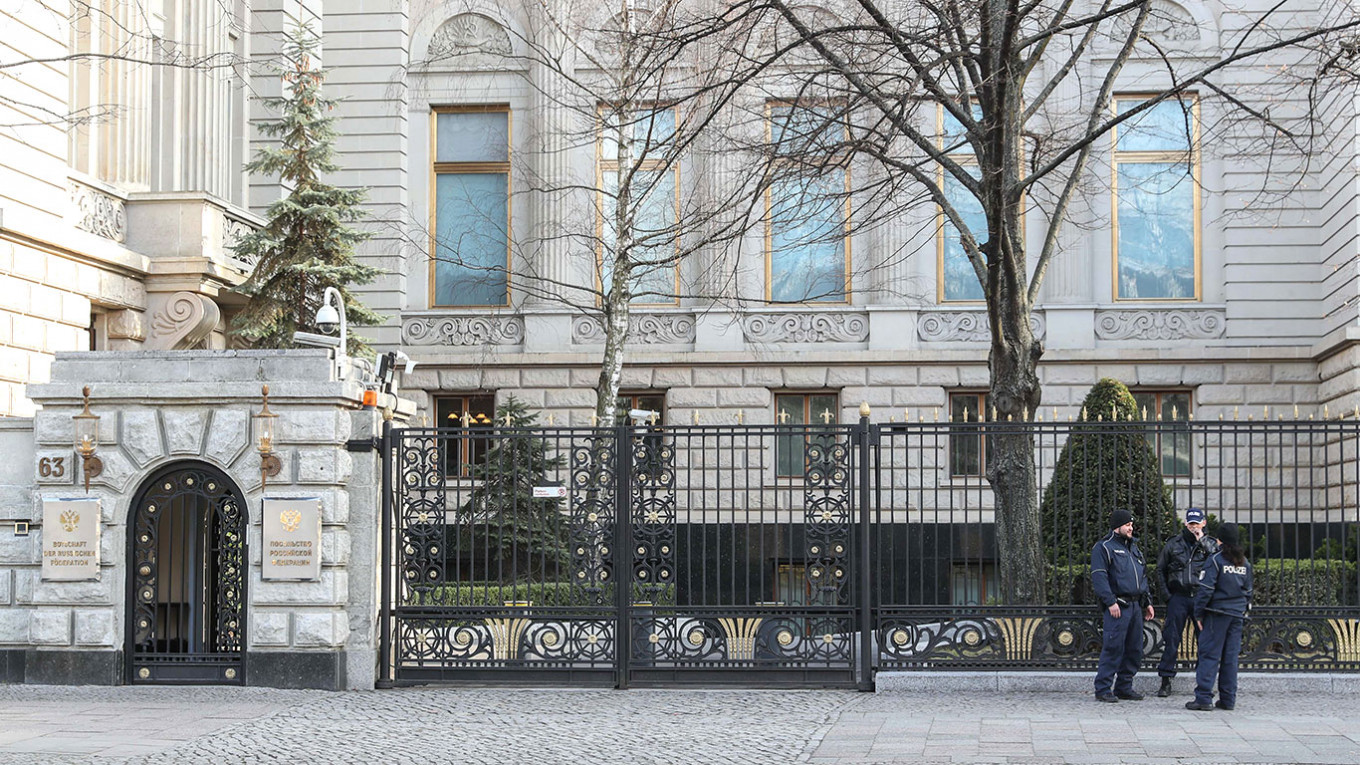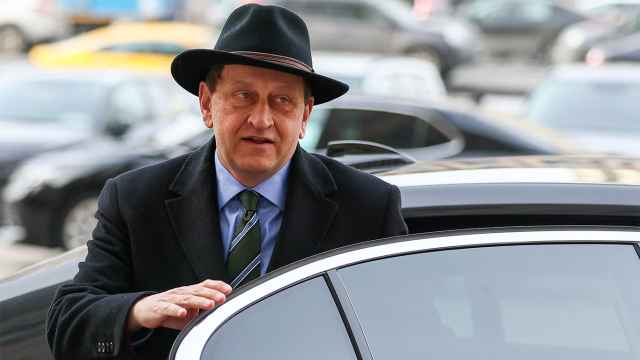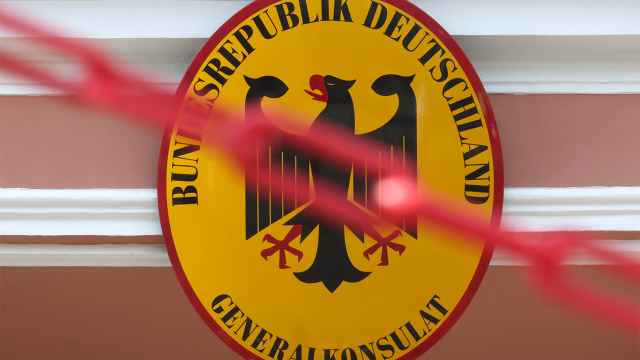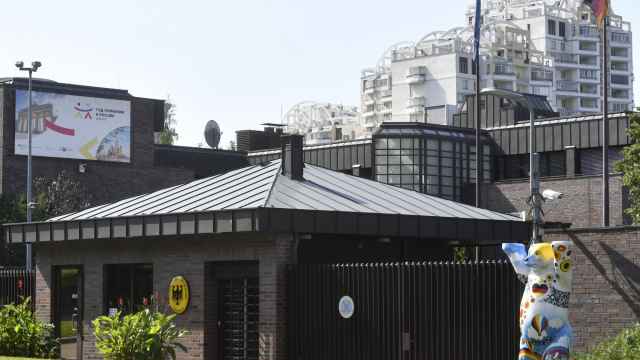A Russian diplomat linked to the Federal Security Service (FSB) was found dead outside Russia’s Embassy in Berlin after apparently falling from an upper-floor window, Germany’s Der Spiegel news website reported Friday.
Berlin police reportedly found the unnamed 35-year-old man’s lifeless body on the sidewalk in front of the embassy building on the morning of Oct. 19.
The deceased was officially listed as Second Embassy Secretary, but Der Spiegel reported that German security agencies considered him to be an undercover FSB employee.
The Russian Embassy in Berlin did not agree to an autopsy and repatriated the diplomat’s body back to Russia, Der Spiegel reported. German police did not investigate the death due to the man’s diplomatic status.
The outlet added that the deceased diplomat was “related” to a high-ranking official at the FSB’s Second Service.
Western intelligence services link the FSB’s Second Service to the high-profile assassination of an ex-Chechen commander in a Berlin park in 2019.
Citing past joint reporting with CNN, the open-source investigative outlet Bellingcat and Russia’s The Insider independent news website, Der Spiegel also linked the FSB’s Second Service to the near-fatal poisoning of Kremlin critic Alexei Navalny.
Bellingcat said Friday that it used open-source vehicle and address registration data to identify the deceased diplomat as the son of FSB Second Service deputy director Alexei Zhalo. Zhalo also heads the FSB’s Directorate for the Protection of Constitutional Order, whose squad Bellingcat said had tailed Navalny prior to his August 2020 poisoning.
Germany’s Foreign Ministry said Friday it could not comment on the Russian diplomat’s death out of privacy concerns for the victim and his family.
“I can say on this matter that the Foreign Ministry is aware of this incident,” German Foreign Ministry spokesman Christopher Burger told reporters, according to the Russian state-run RIA Novosti news agency.
Bellingcat also did not identify the diplomat by name, but noted that he was moved to Berlin on June 19, 2020, two months before the murder of ex-Chechen commander and Georgian national Zelimkhan Khangoshvili.
A cached version of the German Foreign Ministry’s diplomatic list named the Russian Embassy’s second secretary who assumed his duties on that date as Dmitry Maltsev.
“There is no evidence that he was involved in the planning or logistical support for the [Khangoshvili] assassination,” Bellingcat wrote.
The Russian Embassy in Berlin said it could not comment on the “tragic accident for ethical reasons,” according to Der Spiegel.
Later Friday, the embassy slammed “Western media speculations in the context of this tragic incident” as “absolutely inappropriate,” RIA Novosti reported.
A Message from The Moscow Times:
Dear readers,
We are facing unprecedented challenges. Russia's Prosecutor General's Office has designated The Moscow Times as an "undesirable" organization, criminalizing our work and putting our staff at risk of prosecution. This follows our earlier unjust labeling as a "foreign agent."
These actions are direct attempts to silence independent journalism in Russia. The authorities claim our work "discredits the decisions of the Russian leadership." We see things differently: we strive to provide accurate, unbiased reporting on Russia.
We, the journalists of The Moscow Times, refuse to be silenced. But to continue our work, we need your help.
Your support, no matter how small, makes a world of difference. If you can, please support us monthly starting from just $2. It's quick to set up, and every contribution makes a significant impact.
By supporting The Moscow Times, you're defending open, independent journalism in the face of repression. Thank you for standing with us.
Remind me later.






